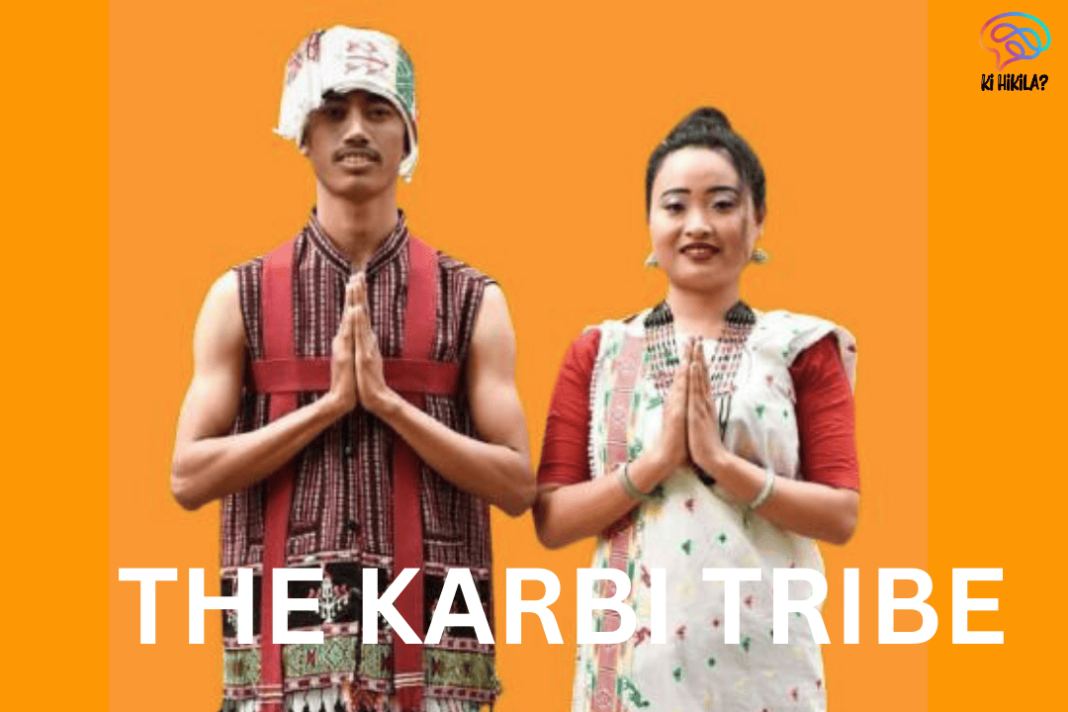The Karbi Tribe of Assam is one of the most prominent indigenous communities of the state, residing primarily in the Karbi Anglong district and its surrounding areas. Known for their rich cultural heritage, vibrant traditions, and unique way of life, the Karbis have preserved their identity despite centuries of socio-political changes. They are a part of the Tibeto-Burman linguistic group and are believed to be one of the earliest settlers of Assam.
Historically, the Karbis were known as the “Mikir” tribe during the British period, but today they proudly identify themselves as Karbi. Their traditions, folklore, and social systems reflect their deep connection to nature, their ancestral beliefs, and their strong sense of community.
Historical Background of The Karbi Tribe of Assam
The Karbis are believed to belong to the Tibeto-Burman linguistic group and are considered descendants of the ancient Mikir race. Oral traditions, folklore, and archaeological findings suggest that the Karbis migrated to their present locations from areas in Southeast Asia centuries ago. Some historians associate their migration with political disturbances and tribal conflicts in ancient times. The Karbi people have historically been a hill tribe, relying heavily on their environment for sustenance, and their history is deeply tied to the geography of the hills they inhabit.
During the colonial period, the Karbis came under the administrative control of the British, which brought changes in their socio-economic structure but did not significantly alter their cultural practices. The creation of Karbi Anglong as an autonomous district under the Sixth Schedule of the Indian Constitution in 1976 was a milestone in recognizing their unique identity and rights over their land.
Geographical Distribution
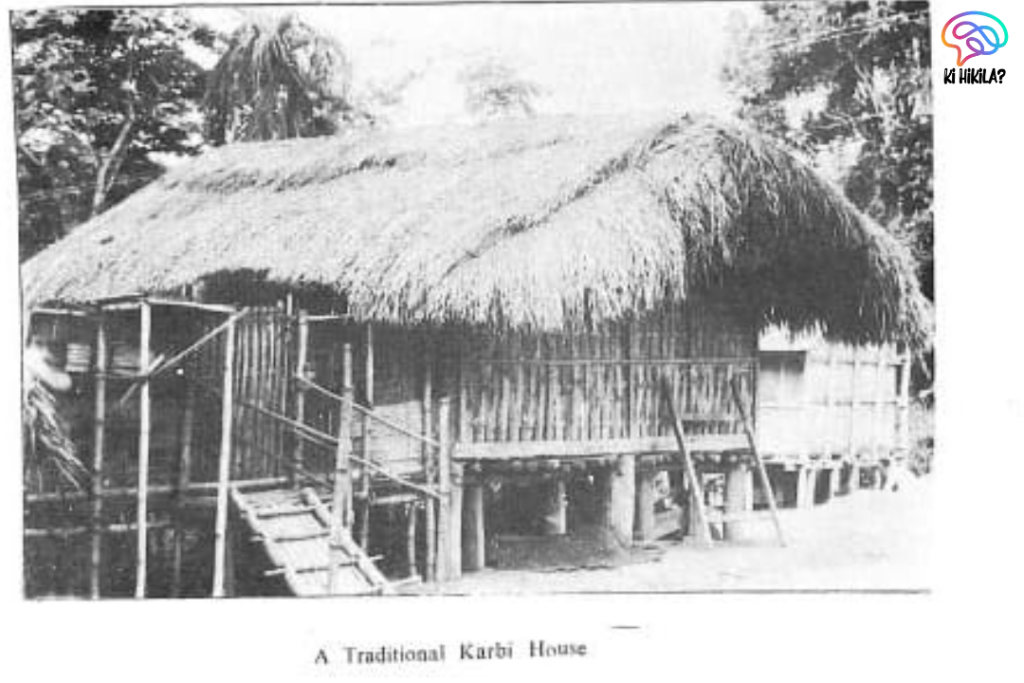
The Karbis predominantly reside in Karbi Anglong and West Karbi Anglong districts, which are known for their lush hills, rivers, and rich biodiversity. Smaller Karbi populations are scattered in adjoining plains districts like Nagaon and Sonitpur, as well as neighboring states. Their settlement patterns often reflect a preference for hilly terrains, where they practice traditional forms of agriculture and maintain community-based living systems.
Language
The Karbi language belongs to the Tibeto-Burman family and is central to their cultural identity. While Assamese is widely spoken among the Karbis, especially in mixed communities, the Karbi language remains the primary medium for traditional songs, stories, and oral history. Efforts are being made by scholars and local organizations to promote literacy in Karbi and to preserve it for future generations.
Traditional Attire
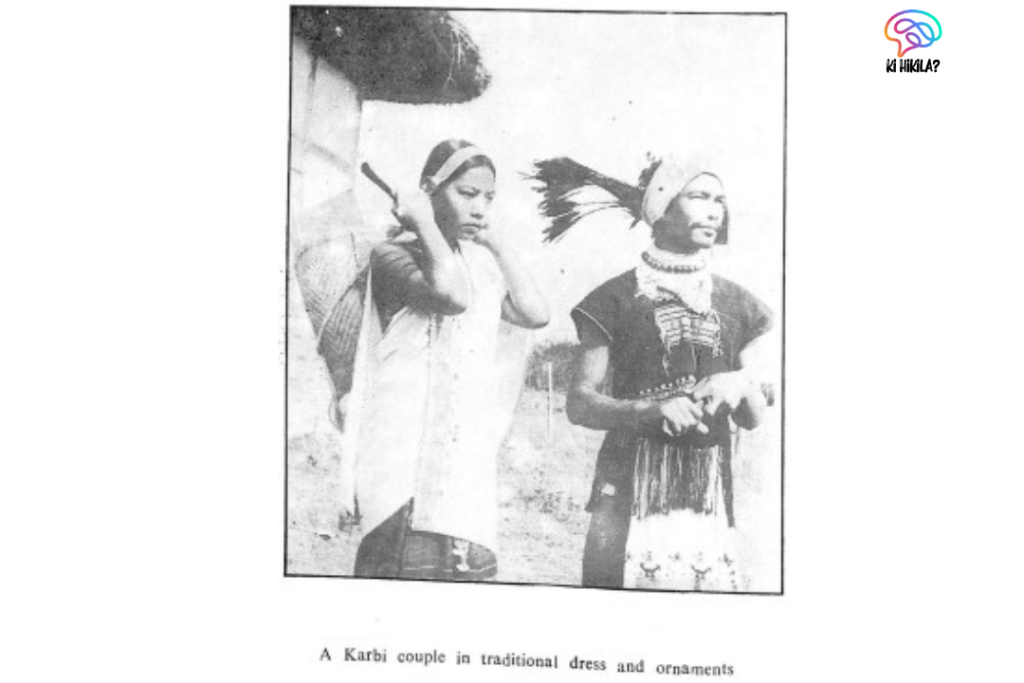
The Karbi traditional attire reflects their distinct aesthetic sense and cultural symbolism. For men, the “Choi” (a sleeveless shirt) and “Pekok” (a loincloth) are common, often accompanied by a turban. Women wear the “Pini” (a wrap-around skirt) and “Pekok” (blouse), usually handwoven with beautiful patterns and vibrant colors. Ornaments made of silver, beads, and brass are also popular, reflecting their craftsmanship.
Festivals and Cultural Practices
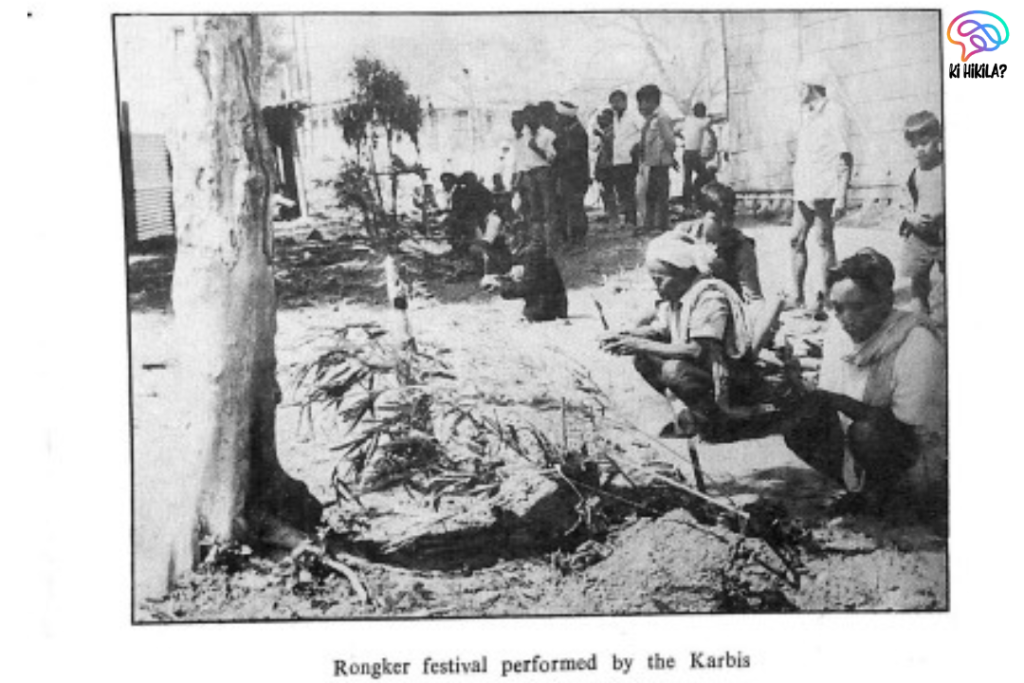
The Karbis celebrate several traditional festivals that embody their agricultural lifestyle and spiritual beliefs. The most prominent is Rongker, a community festival held to appease the deities for the well-being of the village and a good harvest. Another important celebration is Chojun, a post-harvest festival marked by dance, music, and feasting. The Karbi dance forms are often accompanied by traditional instruments like the Chong, Chung, and Dophar.
Oral traditions, myths, and folk songs form the backbone of Karbi cultural expression. Storytelling is not just entertainment but also a medium for transmitting history, ethics, and community values.
Economic Life of the Karbi Tribe of Assam
Agriculture remains the mainstay of the Karbi economy, with shifting cultivation (jhum) being a traditional practice, especially in the hills. In recent decades, settled farming methods have also been adopted. They grow rice, maize, vegetables, and fruits, along with cash crops like ginger and turmeric. Livestock rearing, fishing, and forest-based activities like gathering medicinal herbs and bamboo also contribute to their livelihood.
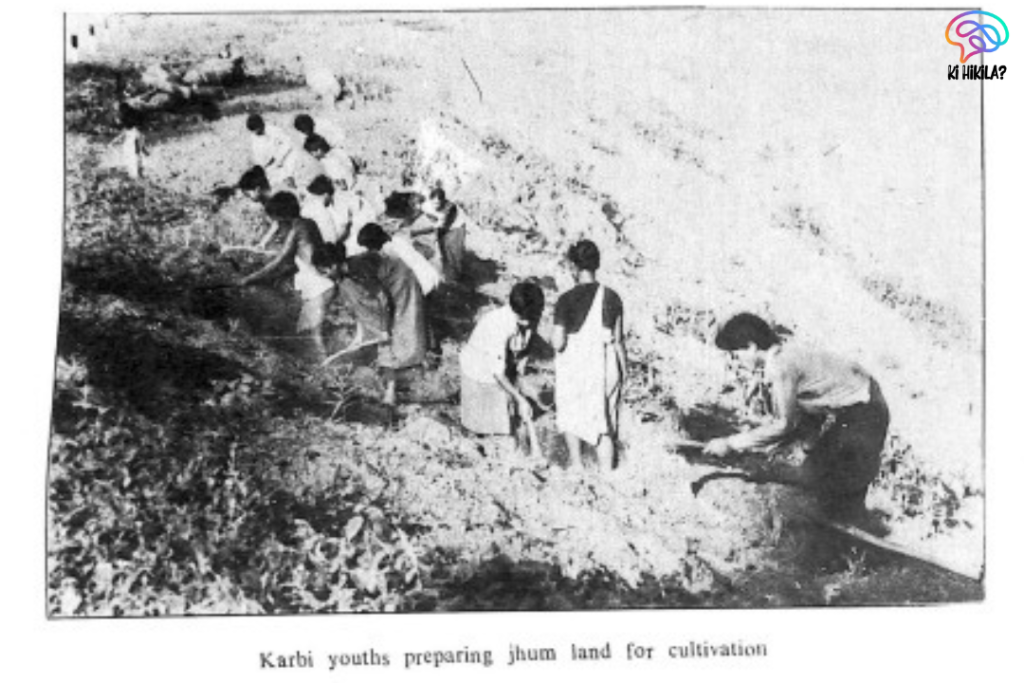
In addition to agriculture, many Karbis engage in weaving, handicrafts, and small-scale trade. Weaving is particularly important for women, who create beautiful traditional textiles used in daily wear and ceremonies.
Religion and Beliefs
The Karbis traditionally follow animism, worshipping various deities connected with nature. Hemphu, Rongker, and Arnam are among their important gods. Rituals are often conducted by village priests, and sacred groves are maintained as places of worship. In modern times, some Karbis have adopted Hinduism and Christianity, but animistic practices continue to hold strong cultural importance.
Social Structure of The Karbi Tribe of Assam
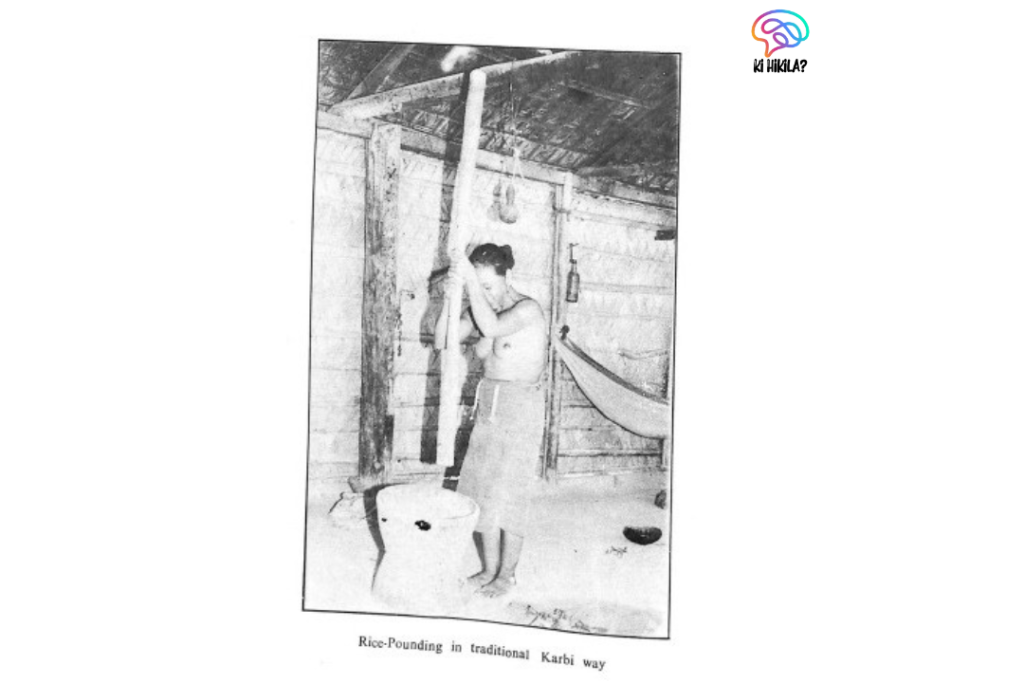
The Karbi society is organized into five main clans — Terang, Teron, Engti, Timung, and Inghi — which play an important role in marriage alliances, community decision-making, and conflict resolution. Marriage within the same clan is strictly prohibited, reflecting their exogamous traditions. Elders and clan heads hold significant authority in maintaining customs and ensuring the smooth functioning of community life.
Challenges and Modern Developments
Like many indigenous communities, the Karbis face challenges such as deforestation, loss of traditional land, and the influence of external cultures. Unemployment and migration to urban areas have also impacted their traditional lifestyle. However, initiatives by the Karbi Anglong Autonomous Council and various NGOs have helped in promoting education, healthcare, and infrastructure while preserving cultural identity.
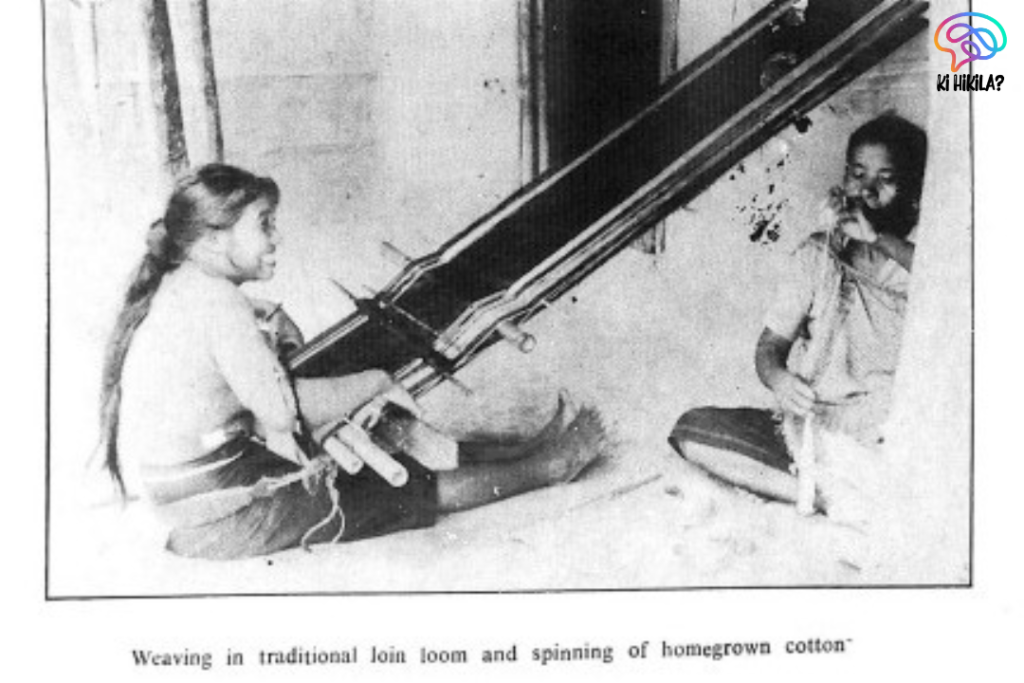
Efforts are ongoing to document and teach the Karbi language, promote eco-tourism in the hills, and encourage traditional handicrafts and agriculture. Cultural festivals and fairs also serve as platforms to showcase Karbi heritage to the wider world.
Conclusion
The Karbi tribe of Assam represents a living link to the state’s ancient history and diverse cultural heritage. With their distinctive traditions, language, and close relationship with nature, they form an integral part of Assam’s ethnic identity. While they navigate the challenges of modernity, the Karbis continue to take pride in their heritage, ensuring that their unique culture endures for generations to come.


